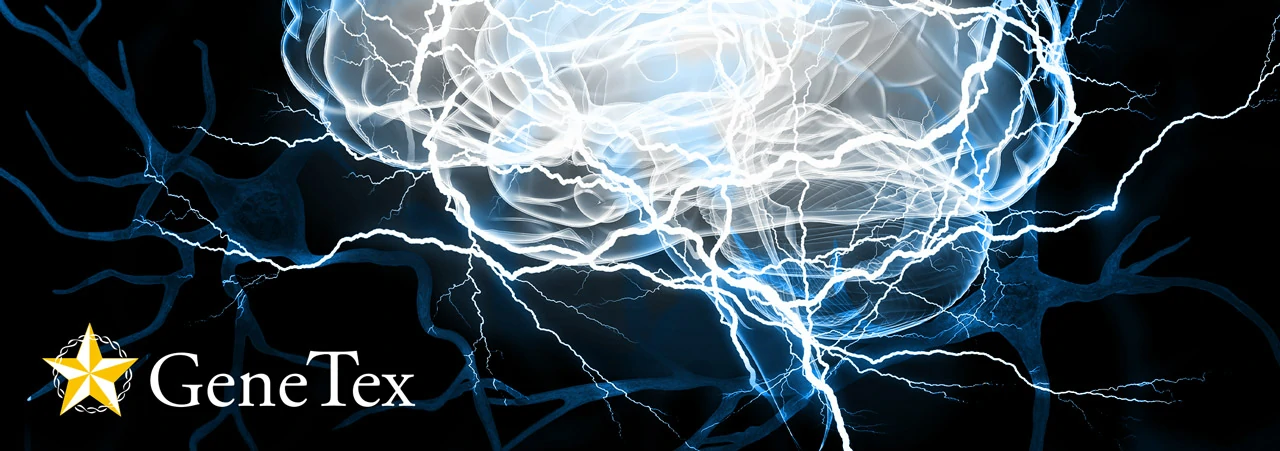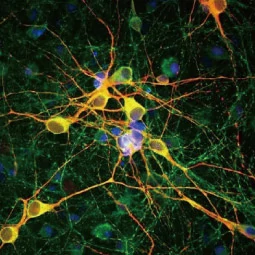Reactive astrocytes are key players in the inflammatory state in Alzheimer’s disease (AD) and other neuropathological processes, so defining their functional roles is essential for potential targeted therapies. A frequently noted feature of reactive astrocytes in various brain injury and disease scenarios is enhanced expression of the small heat shock protein (sHSP) HSPB1, such that it is considered to be a marker of these cells. Though accumulating evidence indicates that HSPB1 has neuroprotective activity effected through different mechanisms, its involvement in AD remains unclear.
A new study by Yang et al. makes an intriguing argument for HSPB1 being a crucial neuroprotective factor in interactions between reactive astrocytes and neurons in AD (1). The authors first used postmortem AD brain samples to show that astrocytes express HSPB1 in human brain, and that reactive astrocytes clustered around Aβ plaques show the most enhanced levels. In addition, HSPB1 was detected extracellularly, consistent with previous findings. Cultured and iPSC-generated astrocyte studies established that HSPB1 is secreted by mouse and human astrocytes, with proinflammatory cytokine-treated astrocytes demonstrating increased secretion. HSPB1 is not released in the context of extracellular vesicles, but rather as a free protein. The researchers also found that both astrocytes and neurons can uptake this extracellular HSPB1, and that recombinant HSPB1 (rhHSPB1) treatment decreases the reactive inflammatory response in astrocytes as well as mediators of neurotoxicity (findings mirrored in organotypic brain slice cultures). Using AAV constructs expressing mutant tau, the team then used primary neuron cultures and the organotypic brain slice cultures to show that rhHSPB1 addition attenuated insoluble tau deposition. Together, the data presented by Yang et al. illuminate how astrocyte-secreted HSPB1 acts through autocrine and paracrine neuroprotective mechanisms in AD and possibly in other neuropathological conditions.
GeneTex offers an extensive catalog of quality antibodies and reagents for neuroscience research, including the MAP2 antibody (GTX82661) cited in the Yang et al. study. In addition, GeneTex wants to introduce its extensively validated recombinant rabbit monoclonal MAP2 antibody [HL1655] (GTX637253). For more information, please see the product images below and visit www.genetex.com.
Highlighted Products
Reference:
- Sci Adv. 2024 Mar 22;10(12):eadk9884. doi: 10.1126/sciadv.adk9884.


![MAP2 antibody [HL1655] (GTX637253) MAP2 antibody [HL1655] (GTX637253)](/upload/media/MarketingMaterial/Newsletter/2024/W16_ArticleAlert/landingPage_img_255x255_02.webp)
![AChE antibody [HL1102] (GTX636298) AChE antibody [HL1102] (GTX636298)](/upload/media/MarketingMaterial/Newsletter/2024/W16_ArticleAlert/landingPage_img_255x255_03.webp)
![alpha Synuclein antibody [HL1242] (GTX636641) alpha Synuclein antibody [HL1242] (GTX636641)](/upload/media/MarketingMaterial/Newsletter/2024/W16_ArticleAlert/landingPage_img_255x255_04.webp)
![GFAP antibody [HL1307] (GTX636725) GFAP antibody [HL1307] (GTX636725)](/upload/media/MarketingMaterial/Newsletter/2024/W16_ArticleAlert/landingPage_img_255x255_05.webp)
![Dopamine Receptor D2 antibody [HL1478] (GTX636952) Dopamine Receptor D2 antibody [HL1478] (GTX636952)](/upload/media/MarketingMaterial/Newsletter/2024/W16_ArticleAlert/landingPage_img_255x255_06.webp)